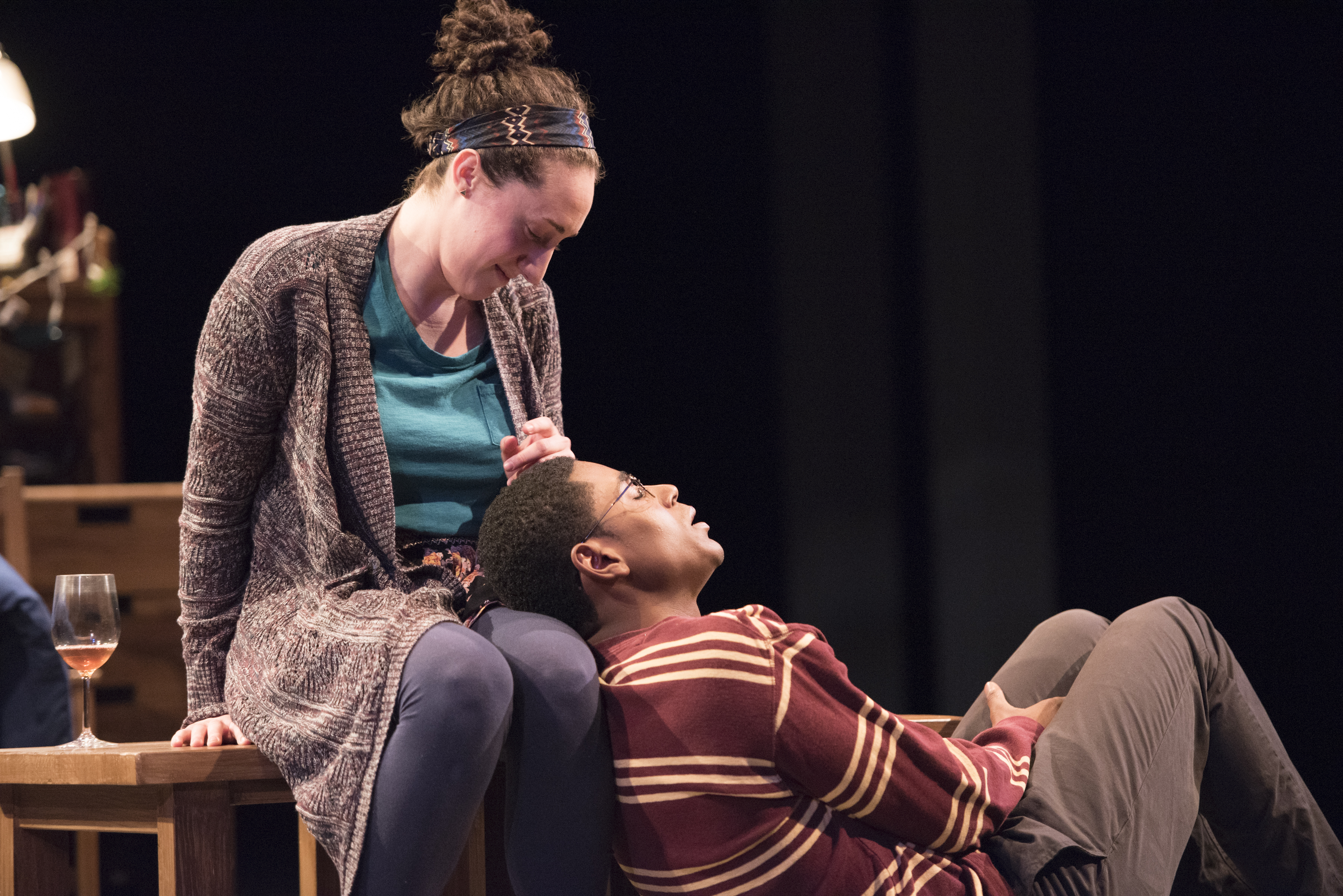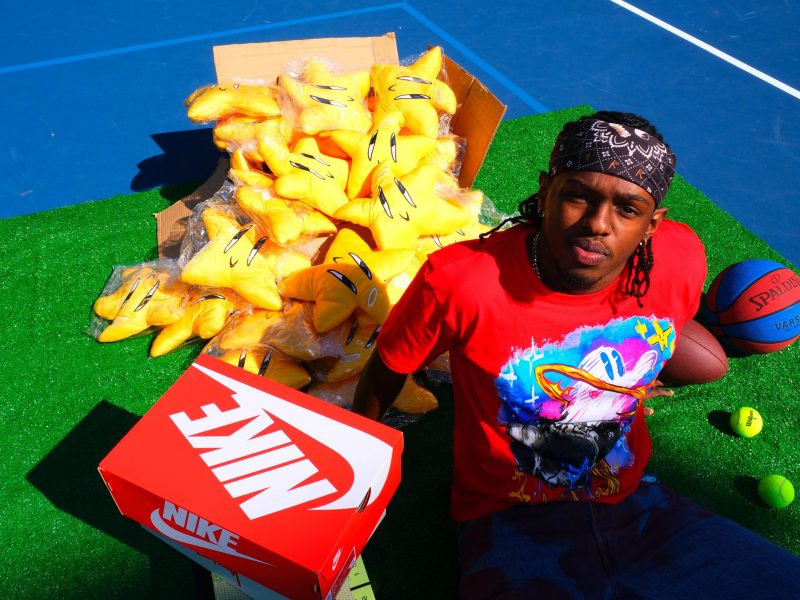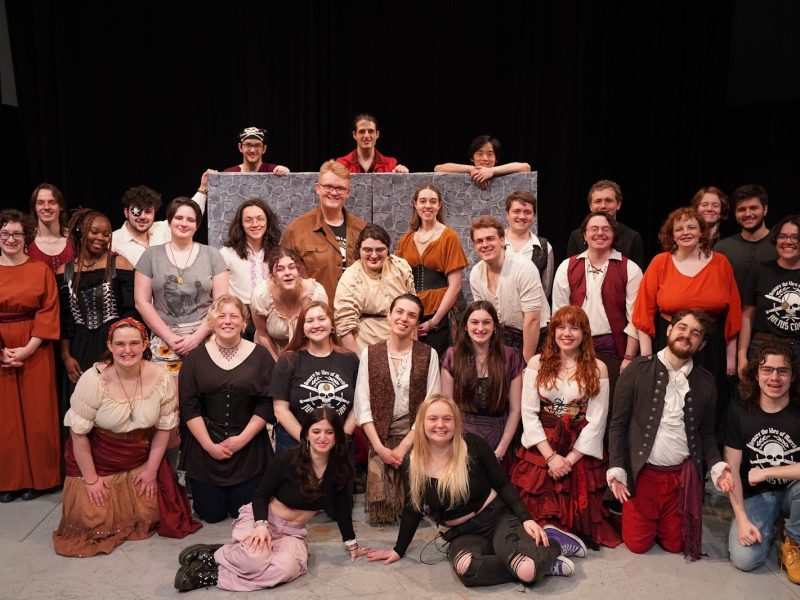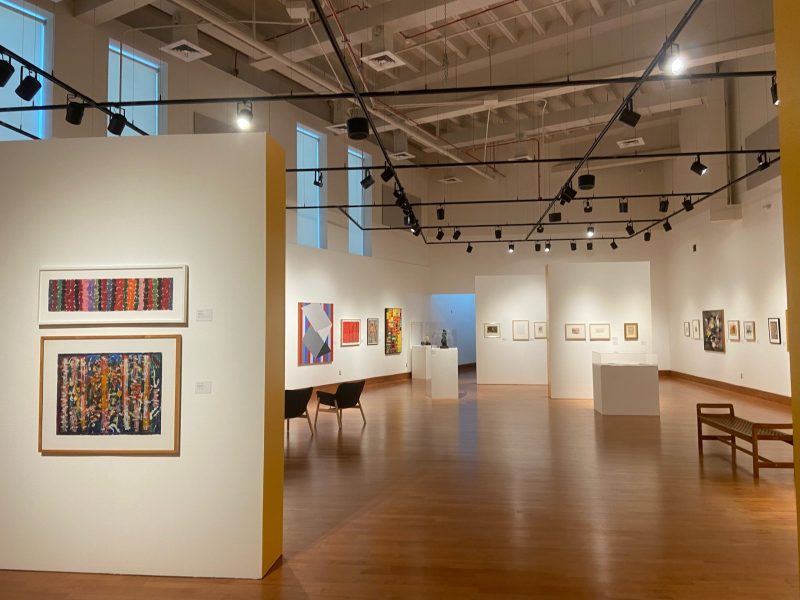Charlotte thinks she’s in love with Jonny. Jonny thinks he might love Charlotte, too. Howard and Lucinda, Charlotte’s parents, thinks it’s time for the two college-aged friends to become committed — or move on.
But everyone has secrets. Charlotte has wondered if she is a lesbian ever since she attempted suicide at age 9. Jonny, the production’s sole black character, has suspected he is gay ever since a pubescent love affair during summer camp when he was 11. Lucinda, with her own past lesbian experiences, has been having an affair because of her sexless marriage with Howard. And Howard, a well-known novelist, has to deal with it all at once.
If it sounds confusing, you’re not alone.
Signature Theatre’s The Mystery of Love & Sex strives to find the answers to intricate issues. It grapples with understanding the malleable nature of one’s own identity. It probes for a formula for fulfilling love in our modern world. It takes jabs at systems of oppression such as racism, sexism, homophobia and even microaggressions. It starts out by addressing generational perceptions of interracial relationships only to run the whole gamut of human sexuality and each character’s innermost dreams.
In short, the high-striving production goes through such painstaking efforts to address a whole bevy of difficult topics that it just ends up saying very little at all.
The Mystery of Love & Sex begins with lifelong friends Charlotte (Shayna Blass) and Jonny (Xavier Scott Evans) as they host Lucinda (Emily Townley) and Howard (Jeff Still) for an ill-prepared dinner in their college apartment. The conversation grows increasingly strained as topics of race and love arise, filling the room with palpable tension.
After the parents depart, Charlotte, egged on by a glass of wine, reveals the play’s first bombshell: She “might” be bisexual and “might” like Claire, a shaved-head lesbian in her gender theory class. One glass of wine quickly turns into too many to count, and Charlotte strips down naked in an attempt to have sex with Jonny minutes after revealing her sexual orientation. A devout Baptist, Jonny cites their different faiths as a reason why they shouldn’t have sex, leaving Charlotte upset and uncertain about her romantic prospects.
Cracks start to form in Howard and Lucinda’s relationship as well. We learn they haven’t had sex in seven years — and the last time they did, Lucinda quips, Howard stopped halfway through to remember a phone number. We also learn of Lucinda’s dependence on cigarettes and marijuana as a “crutch.” But Lucinda drives the final stake in her and Howard’s marriage minutes after Charlotte unveils she is a lesbian.
“While things are still in pieces,” she blurts out to her shell-shocked husband, “I’m seeing someone.”
The rest of play is a roller coaster of convoluted plot twists after even more convoluted plot twists too confusing to depict and sometimes bordering on asinine. There’s a tiff between Jonny and Howard over whether Howard’s writing displays deeply held prejudices, an unnecessary side story that further muddled the perplexing storyline. With only a five-person cast, so many important characters (including all the love interests of Charlotte and Jonny) never make it to the stage. Instead, the play gives piecemeal descriptions of integral yet absent characters that make one feel disconnected and uninterested in key plot developments.
At some points, even audience members voiced their confusion. The opening line of act two found Charlotte gushing about her new fiancee, Martha, with little explanation of how Claire and Charlotte ceased to be.
“Martha?!” a woman incredulously shouted before stifling a minute’s worth of laughter.
Despite key plot issues, Signature Theatre did as well as it could have with The Mystery of Love & Sex. Blass was a firecracker of energy, embodying youthful idealism and turning otherwise-contrived developments into moving moments. Evans played his dynamic character with aplomb, beginning the show as a melancholy and nervous boy before blossoming into a confident and radiant man after embracing his sexuality. To their credit, Townley and Still had excellent onstage chemistry, mastering their comedic delivery with each other. The unnamed final character, Howard’s father, graced the stage for nearly one minute, only to return for the final bows. The set changes themselves were seamless, a stark contrast to the disjointed nature of the play.
But even all that couldn’t overcome the play’s inexplicable nature. There were of course some funny moments — “You can get fat and pretend it’s a political statement,” Jonny shoots back after Charlotte asks, “What if I’m a lesbian?” — but much of it left me wondering exactly what overarching message the play was trying to send.
Was it about the fluidity of human sexuality? Was it about the intersection of race, gender and sexual orientation in each person’s identity? Was it about the shifting generational perceptions of what constitutes love?
What, exactly, was it trying to say?
It’s hard to answer, but one thing was evident. The real mystery was not just of love and sex; the mystery was trying to figure out just what exactly was going on.



